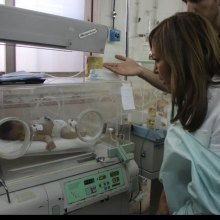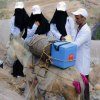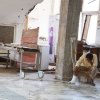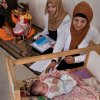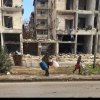
UN health agency denounces attacks on health facilities in Syria
UN health agency denounces attacks on health...
On November 17, the United Nations World Health Organization (WHO) condemned attacks on five Syrian hospitals – including two trauma centres and an emergency obstetric centre – as well as a mobile medical clinic, and demanded that all parties to the five-year conflict respect the neutrality of health workers, health facilities and medical supplies.
“The pattern of attacks indicates that health care is being deliberately targeted in the Syrian conflict – this is a major violation of international law and a tragic disregard of our common humanity,” WHO said in a statement today.
“These attacks have seriously reduced the availability of health services in northern Syria and resulted in a major disruption of referrals of critically injured and ill patients,” the agency added.
The attacks took place between 13-15 November and, according to reports, killed at least two people and injured 19 others, including six medical staff.
Of the facilities attacked, three hospitals – including a frontline trauma centre and a secondline trauma centre – were located in western rural Aleppo and two were located in Idleb – one of which was a key referral hospital for comprehensive emergency obstetric care.
On a monthly basis, these hospitals were providing more than 20,000 consultations, and performing more than 600 deliveries and 1,700 major surgeries.
In addition, a mobile clinic in Idleb’s Jishr-Ash-Shugur area, providing essential basic healthcare to more than 3,500 patients was also attacked.
According to WHO, such attacks in the war-ravaged country have increased in both frequency and scale.
Thus far in 2016, the agency and its partners have documented 126 such attacks across Syria.
“The attack of five hospitals and a mobile clinic in less than 48 hours is an outrage that puts many more lives in danger in Syria and deprives the most vulnerable – including children and pregnant women – of their right to health services, just at the time when they need them most,” it noted.
source: http://www.un.org/apps/news/story.asp?NewsID=55580#.WC9smH2bhlE
 Reload
Reload